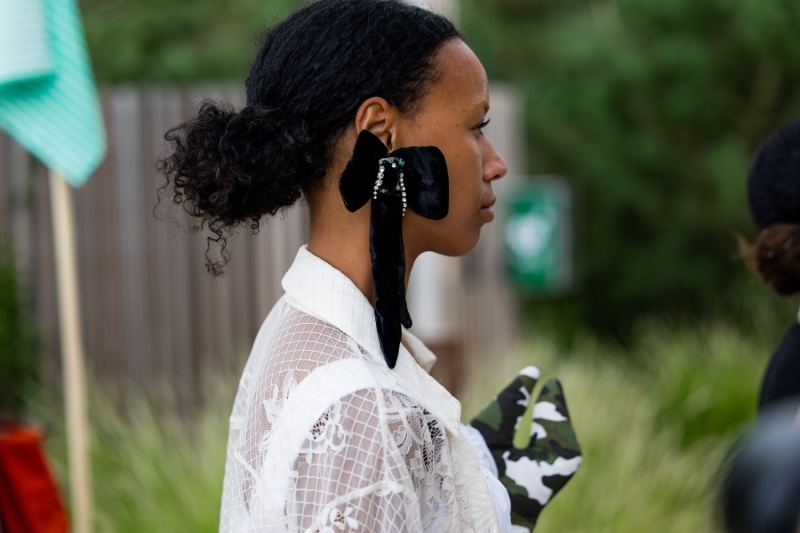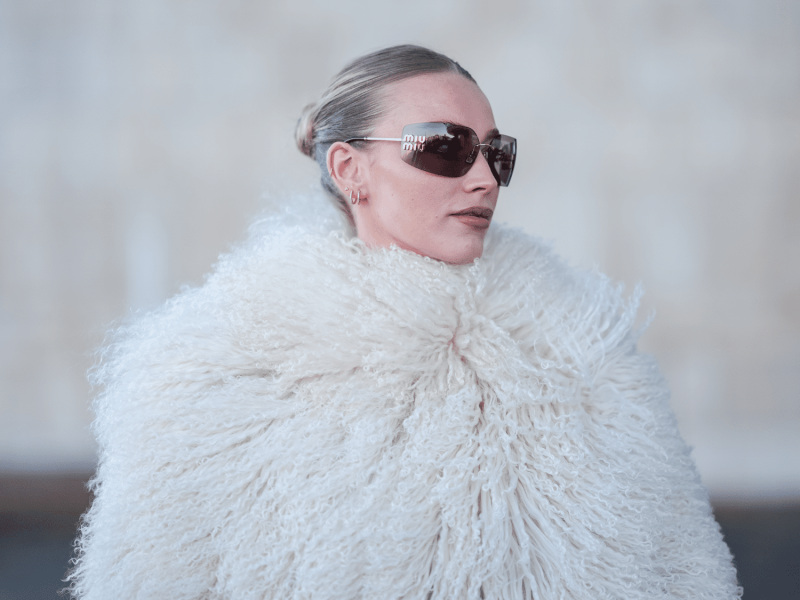Dirty hair, don’t care? It’s not so simple. That’s because dirty hair can, unbeknownst to many, be the source of hair and scalp pain and discomfort. Whether you skip a few days between shampoos, rely on a plethora of dry shampoo to keep your hair looking fresh and smelling clean, or just have a naturally unbalanced scalp, the result of dirty hair pain can sometimes become a little more serious and evolve past subtle itching and mild throbbing, developing into an infection, dermatitis, or folliculitis. To get to the bottom of what happens to the scalp when the hair is dirty for a bit longer than it should be, we turned to the experts for the truth about dirty hair pain.
Meet the expert
Rita Hazan is a celebrity colorist and founder of Rita Hazan Salon
Kseniya Kobets, MD, is a board-certified dermatologist and the director of cosmetics dermatology at Montefiore Einstein Advanced Care
Bridget Hill is a certified trichologist and scalp therapist
What Causes Dirty Hair Pain
If you subscribe to the theory of only washing your hair about once per week, you may also experience hair that hurts. Medically known as trichodynia, Hill explains that dirty hair pain is often the result of infrequent and improper cleansing and shampooing, leading to a buildup of bacteria, dead skin cells, and product around the hair shaft. “This buildup can disrupt the scalp’s microbiome and contribute to inflammation, redness, flakiness, or dehydration and damage the hair follicle.” While a little bit of oil can be beneficial for your hair, too much of it can suffocate the hair root and lead to inflammation. The result is hair that hurts and a painful, irritated scalp that may feel sore to the touch.
With dirty hair, a buildup of oils can also cause yeast and bacteria to form on the scalp, which Hazan says can clog the pores and leave hair itchy. When you scratch your scalp with intentions of alleviating the itchiness, you actually end up irritating and breaking your skin even more.” Dr. Kobets adds that the overgrowth of yeast or bacteria can potentially lead to dandruff if it is not properly removed or washed out of the hair enough.
But it’s not just dirty hair that can cause it to hurt. Using the wrong hair products and overusing them can also be a culprit. Hard waxes, heavy gels, sticky hairsprays, and dry shampoo that accumulate around the hair follicles can irritate and inflame them, leading to dirty hair pain. “If you continue to use hair products without cleansing the hair and washing them out, you are doing a disservice,” Hazan says. Using harsh chemicals on the hair and wearing too-tight hairstyles can generate a pulling sensation, especially when dirty, inducing hair that hurts.

How You Can Fix Dirty Hair Pain
A clean scalp is a must for healthy hair and preventing dirty hair pain, which is why Hazan says it’s necessary to make sure the scalp is always clean and well-hydrated. Naturally, the easiest way to fix a dirty scalp that’s causing your hair to hurt is by washing it thoroughly with shampoos that effectively cleanse the scalp. Hazan recommends first washing the hair with a cleansing shampoo and following up with a hydrating shampoo and conditioner. “I also like Raw Sugar Living Vinegar Hair Rinse, which contains apple cider and white vinegar to rebalance the scalp and prevent oil, skin cell and product buildup.” In addition to clarifying shampoos, exfoliating ones with ketoconazole, tea tree oil or salicylic acid are also helpful. “Or you can wash the hair with an anti-dandruff shampoo,” Dr. Kobets adds. Verb Dandruff Shampoo ($16) is a gentle yet effective one that contains salicylic acid, which Hill says helps improve scalp conditions without drying out the skin barrier.
Rather than sticking to just one type of shampoo to make dirty hair pain a thing of the past, Dr. Kobets recommends alternating between different clarifying, hydrating, and gentle shampoos that are fragrance-free and sulfate-free to keep the hair and scalp clean, balanced, and healthy. Make sure not to overwash the hair or get too aggressive with your shampooing techniques. “Overwashing can also cause irritation and dryness resulting in tenderness or pain.”
Beyond properly shampooing the hair, Hill stresses the importance of scalp hydration and moisture. “Hydration assists with replenishing the skin barrier to aid in repair and healthy cellular turnover.” Easy-to-perform scalp massages are also worthwhile.
Another trick of the trade to help reduce pain associated with dirty hair is an old-fashioned steam treatment, which Hazan likes. It involves steaming the hair in the shower or with a hot towel and a conditioning treatment “so the scalp can breathe properly.”
In the hair product department, it's best to steer clear of those with silicone, oils, and other heavy hydrating ingredients since they can accumulate around hair follicles and lead to dirty hair pain. Dr. Kobets says these products can cause scalp pore blockage, resulting in product buildup.
If you find yourself shampooing your hair more often, yet your hair still feels painful, book an appointment with a trichologist or dermatologist to get to the root cause of what is going on. It could be dandruff, scalp psoriasis, or folliculitis, the latter of which Hill says is just a buildup of bacteria that can lead to bacterial infections and, eventually, folliculitis. “When folliculitis is the result, the inflamed hair follicles can produce painful pustules, redness, bleeding, and soreness.” She adds that the key to managing folliculitis is to retain healthy cellular turnover and keep the scalp flake- and debris-free without disrupting the scalp’s microbiome or stripping its natural oils.
